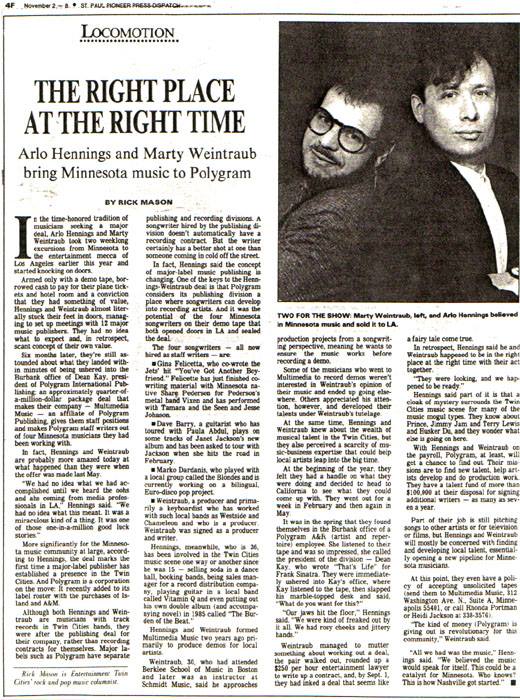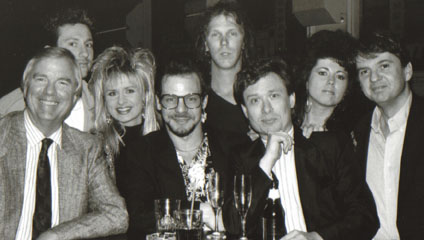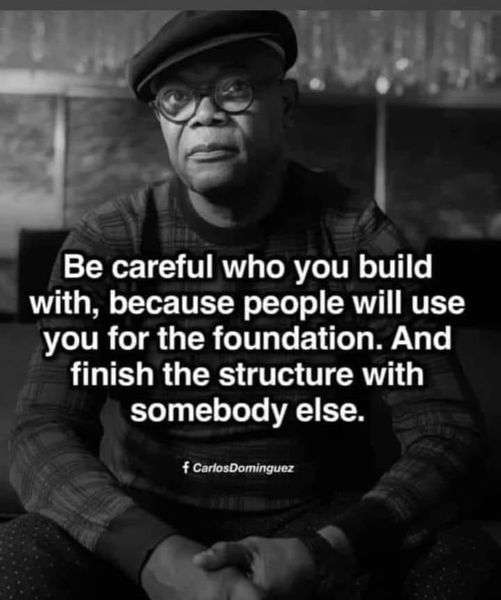The music business wasn’t something I had an in to be in. My parents wouldn’t buy me a guitar, let alone finance Music School. My brother mocked me, and the rest of society called me a dreamer. Despite the ridicule, I forged ahead. I learned the business from the ground up without two nickels to rub together, self-taught, and with an unwavering drive to prove something.
After the breakup of my 5-year stint in a local band, I started my very first solo venture into the music business, producing recordings. I had struck gold in finding a person who shared the same enthusiasm.
He had completed one semester at the Berklee School of Music, played keyboards, and knew a thing or two about music. He also knew about Prince’s music, but had no clue about the current underground music trend. A total nerd that grew up on The Partridge Family and David Cassidy.
My future business partner had the charisma of a snake oil salesman, unreliable and immature; however, he had made music his life’s choice and stumbled along. I first met my music business partner when he came off the road from performing with a cover tune band called Maiden America.
The year was 1985, and he was 25 years old, but acted like he was 19. I was 31 years old. The memory of how or where I first met the guy is vague. His creative energy was infectious but lacked direction. He was jumping from one cover tune band to another and began to get into the recording studio side of the business as a session player, engineer, and producer. He was honing his skills in recording for a potentially promising ride in the music business.
At 5 feet, he was shorter than me by almost 7 inches. His body was stocky, and due to his hair disease, alopecia, some weeks he was partially bald. He drove a used diesel-powered Pinto that had to be left running through the night in the winter, or it would refuse to start again.
It wasn’t long before he took up an apartment below me with his one-nighter wife, and the rest of the story chiseled from actual events.
I invested in purchasing recording equipment and, with my unvetted partner, set out to find a suitable location for it. He loved the ambiance of refurbished old buildings, which would manifest itself in his future office in the Internet marketing business.
We found one such place, and the rent was on me, just like all the other investments in our partnership. However, my partner brought his own customers and lacking any formal business agreement, I let it go as a means of networking. The studio was called "Thump Studios." In a short time, his studio skills improved measurably, and he was soon involved in numerous artists' recording projects, including my own double-album novella project.

Although he admitted not understanding the current music trend, I believed his days on the road and a brief stint at Berklee College of Music were paying off. He had a knack for dime-store pop melodies, and as a quick study of other studio engineers around town, he began to produce demo tapes.
He considered himself a second-generation home studio guru, having learned from artists like Dugan McNeill (who learned from Yanni), and I absorbed what he knew. We were all a bunch of creative sponges. Thump Studios moved frequently and ultimately settled as a 4-track Portastudio in the kitchen area of my one-bedroom apartment in South Minneapolis.
My partner helped me to produce a double album called "Burden of the Beat" (1985). Even though I paid him, he began to show signs of behavioral problems, like not showing up and lying on the studio floor with his thumb in his mouth, weeping. Granted, he did get married, and the first night of his marriage, he caught his newlywed wife having sex with his roommate.
I didn't think too much of it as long as he came through with his commitments. He connected me with a photographer from Moorhead, MN. Subsequently, I received financial assistance (in the form of a grant) from the Plains Art Museum, which wanted to exhibit my project. There was a show, and the media came. After that experience, I started to notice another side of him.
Once the limelight was on, he acted very self-centered and forgot whose project it was.
Later on, he recorded his own instrumental music, and I suggested we take it to a New Age music conference in Los Angeles (1986). We stayed at my Dad's house and used his car. My Father called my partner an "unbridled little boy," which my partner called himself 35 years later in a Facebook post. He left out the little boy part and just said "unbridled."
No laws broken yet, so hang in there with me. I'm rewinding the audio tape.
After the New Age music conference in LA, the wheels in his head started spinning, but his New Age Dolphins recording project would come later. There was also a quick trip to New York to pursue a lead with Flim and the BBs. I slept in the same bed with my future business partner, not out of romance, but because his grandmother insisted on it.
The same grandmother he told me was wealthy, and he was in line to inherit a large sum of money, split between him and one of his sisters. On that trip, I found myself in a dark basement of a sex shop in mid-Manhattan, where my partner disappeared into a booth and said he masturbated while watching someone through a window.
It was the first red flag that my business partner was a sexual deviant.
At my expense, I upgraded my studio to an 8-track and 16-channel mixer, as well as other outboard gear. To do this, a lease for the equipment was required, and my wife, on a waitress's income, signed the papers.
The total came to $15,000, and with a hefty monthly payment, only my name somehow ended up on the contract. My partner saw himself in the role of bringing in customers, not making financial investments. Our business relationship was legally murky.
My dream was to create the Tin Pan Alley of Minneapolis. Between my partner and another friend, we recorded over 100 songwriters. Not a money maker by any means, but it paid for itself. Over the next couple of years, the recordings and songwriting improved. We were actually getting good at this!
My partner’s flaky behavior steadily grew worse, but I looked the other way. I stuck to his talent and overlooked the personal.
Journey to Tinsel Town
One day, I got the idea to showcase the demo recordings of six of the best artists to potential buyers in Los Angeles.
I organized the trip, made the appointments, and to make it financially feasible, my Dad offered the use of his car and house again. In 1989, we returned to LA. After many rejections, my partner wanted to quit. I pushed onward to the final appointment with the President of PolyGram Music Publishing (the man who wrote ‘That’s Life’ for Frank Sinatra).
I handed the first cassette to the President, and he listened carefully, then asked for another cassette. My partner put his feet up on his desk like it was a joke. My partner went along for the ride. He had no interest in being my partner. He took the whole venture with a grain of salt until the money arrived.
The meeting ended, and weeks later, Polygram Music made an offer. We accepted, and my partner and I signed a contract via my Arlo Hennings Publishing Co. and PolyGram Music International. We were now legally 50/50 business partners in the music publishing and artist development game, and one of the most significant or unusual music deals of its kind in the history of Minnesota music.
Significant or extraordinary, in that only Prince and Jimmy Jam and Terry Lewis had done similar.

Before we returned to Minneapolis, there was a holiday trip to Tijuana. Inside a mangy bar, my partner left to go upstairs to pay an old Mexican woman to give him a handjob. I shook my head in disbelief as I watched the old woman do her handy work.
Little was I aware, but from that moment on, before the ink dried on our contract, my partner was working to eliminate me. Once again, similar to the event at the Plains Art Museum, he forgot who brought him to the party. Before the lies started, let me back up and tell you my story about when I first met his parents.
His father said he was a tax preparer and grew up in the cutthroat New York Jewish garment district. I had no idea what that was supposed to mean but his father wanted to show me an accounting software program. What struck me as unusual was his obvious look of concern about his son. The look made me paranoid. There was something I didn't know about my new business partner. What it was would unfold soon. My partner’s dad had remarried, and I learned my partner’s mother was a medicated schizophrenic.
During a contract signing party, a friend of mine, whom I had known for decades, pulled me aside and warned that my partner was going to rob me. Had I paid heed to the warning, I couldn't have done much about it at that point. What my partner promoted as "the don't deserve it deal" was off to a grand start when he launched his own company, called "Music First Productions," which was essentially in the same business as his partnership with, and in de facto competition against, the one he signed a contract with, PolyGram, and myself.
Fast forward, my partner was double-billing the parent partner, PolyGram, behind my back. It was recoupable debt, so if there were a profit, I would owe on his phony billing. In addition, by leveraging the PolyGram name, he sought to make behind-the-scenes deals with others for his own sole benefit.
1989 ended in a bang when my partner and I presented the Minnesota Music Academy Artist of the Year award.

A Vanishing Act
My recording studio wound up in the basement of a rented house—the house owned by a person who wanted to be in the music business with us. The owner of the house offered my partner the house as an incentive to gain a partnership share in our business.
My partner swindled the ownership of the house into his name. My partner was a busy guy!
Meanwhile, there were the artists that he was responsible for. One artist my partner signed was a guitarist who accepted the money and disappeared on the road with Paula Abdul and Janet Jackson.
The artist who was part of the company's flagship project took off and joined a motorbike gang and became an inconsolable drug addict, citing the reason was that he didn't trust my partner.
One female songwriter packed her bags in frustration and moved to LA.
Another company artist left town in the middle of the night and was not heard from again until I discovered months later he had signed a record contract with Interscope Records.
All six artists who were part of our Polygram Music contract flew the coup.
In between, my partner was a jumping bean fucking interns and recording one-offs with no-potential artists that infuriated everyone.
Continuing behind the scenes, my partner mounted a campaign to secure a record contract with an old friend. It almost worked until the label rep felt trapped and pleaded with me to rid her of his unwanted sexual advances.
Over the course of the next year and a half, I spent most of the time making in-person calls with record company execs. On one of these trips, I met up with my partner and one of our artists in Nashville, where she told me that my partner frequented Gay bars and had casual sex with men.
During this time, the largest conglomeration of labels began, which forever changed the face of the music industry. Later, the Arlo Hennings Publishing deal fell under the axe too.
My partner had a habit of getting high, then meeting VIP people and shooting his mouth off. Because he had done that to the President of Island Music Publishing, the President of PolyGram, our boss, said he was tired of his shenanigans, and that was the reason he terminated the contract.
However, my partner told everyone the classic reversal fact — it was my fault. My partner admitted in private that he robbed me. He went so far as to taunt me with singing nursery rhyme style, "I'm going to be sued," just to get my goat.
I had worked up to this point in my entire life.
I had a baby and a wife. My partner cared so much about me his dad forced him to visit the hospital when my baby was born. Losing everything led to bankruptcy, and my partner laughed. I didn't have the money to sue him. My partner’s favorite expression for describing his behavior wasn't an apology; it was "You can't win a pissing match with a skunk."
In 1992, we went our separate ways, and I realized why my partner’s dad was concerned. Looking back, my partner wasn’t unethical so much as creatively allergic to honesty. But hey, I walked away with a solid life lesson: always check your partner’s business plan for bullet points that only mention him. And perhaps it's a good idea to thoroughly evaluate potential partners before diving into business with them. After all, you don't want to end up in a situation where your partner's LinkedIn bio doesn't mention you.
Our partnership lasted 7 years, but despite the newspaper articles, contracts, and YouTube releases, my partner refuses to credit me for anything. A person who consistently refuses to give proper credit for contributions is often called a credit thief, credit hoarder, or credit stealer.
These terms describe someone who benefits from the work of others without acknowledgment, often out of a desire to appear more competent or successful themselves, but without acknowledging others' roles in the process.
It's important to be self-aware and cautious in business relationships. I admit, I was too easy-going and too trusting. In other words, I allowed myself to be lured into a delusional non-existent collaboration.
My partner called our contract with Polygram Music the “don’t deserve it deal,” and he is right in the respect that he didn’t earn it. He happened to be sitting in the right place at the right time. I, on the other hand, watched my dream go up in flames.
So, what's the moral of the story? If your partner treats the business like their personal ATM or disappears with your tech stack... that’s a business story I'll never forget. But hey, telling it later? It's a lesson learned and a story to share. Want me to spin another one?
